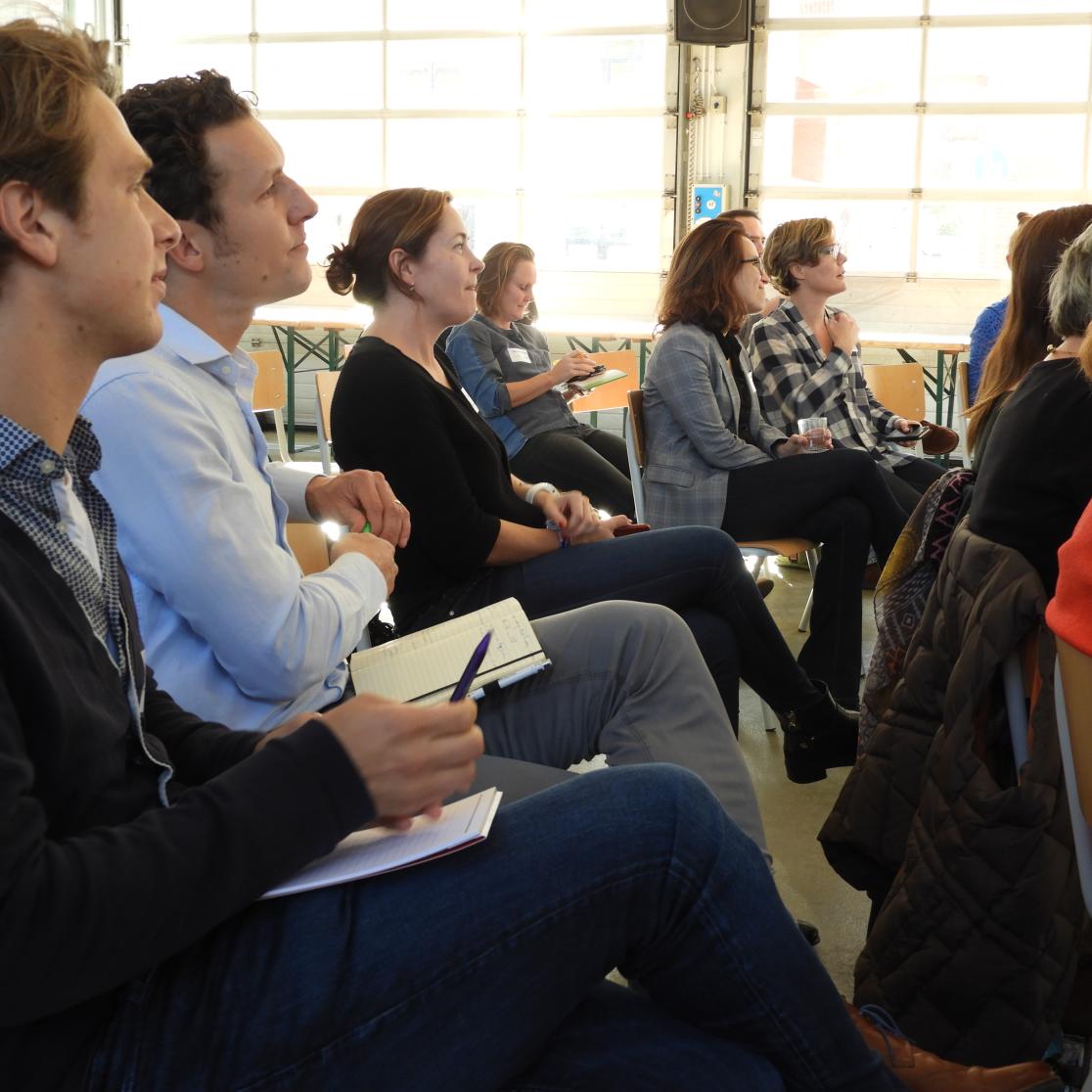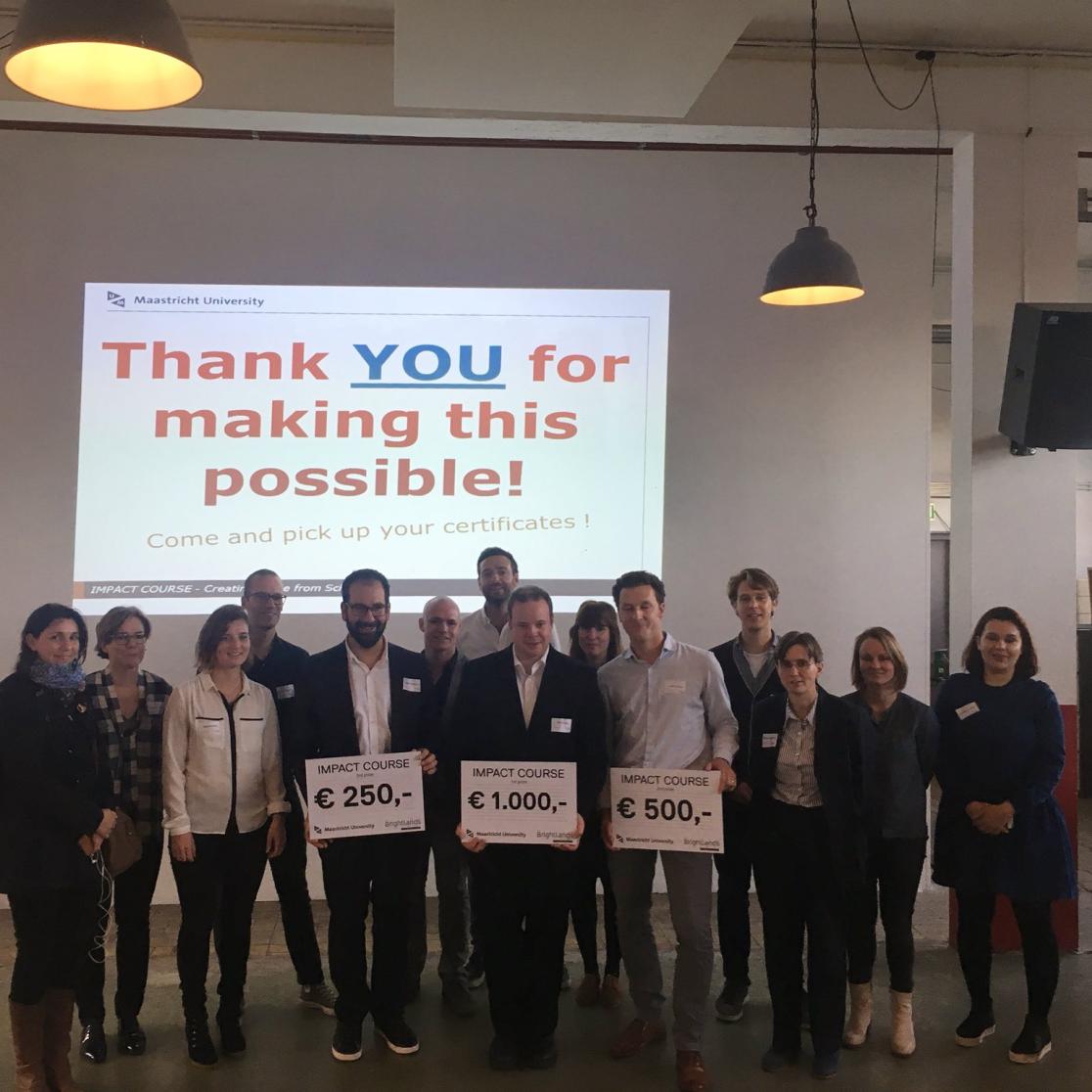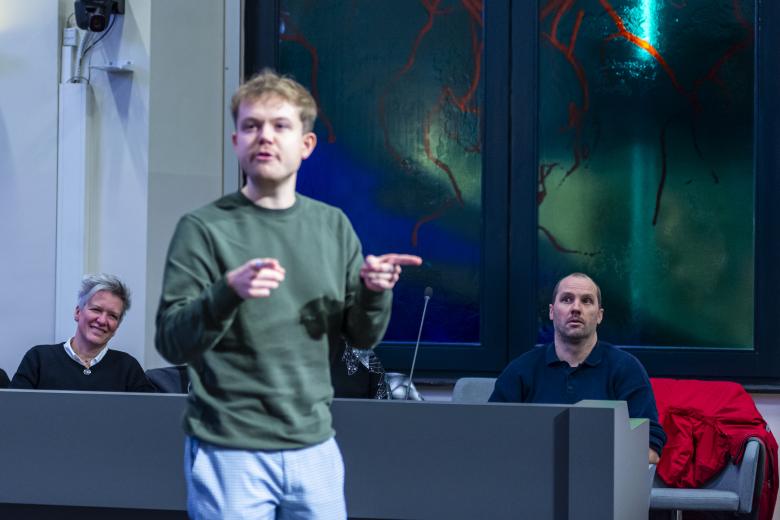Rico Möckel wins IMPACT COURSE competition
UM researcher Rico Möckel has won the UM’s IMPACT COURSE competition of, with intelligent robotic game devices for assessing cognitive, physical and social capabilities in children and elderly people. The aim of the course is to create awareness among Maastricht researchers (from UM, MUMC and Zuyd Hogeschool) about the social impact of research and the opportunities of knowledge utilisation. Möckel, who is an assistant professor for Robotics and Intelligent Systems at the Department of Data Science and Knowledge Engineering (DKE), was one of five nominees who pitched their research impact. The prize carries a cash award of € 1000.
The five nominees, who pitched their research projects on 3 October, were: Barbara Belfi (School of Business and Economics/ROA), Katrien Bernaerts (Faculty of Humanities and Sciences), Rico Möckel (Faculty of Humanities and Sciences), Joost Lumens (Faculty of Health, Medicine and Life Sciences) and Darian Meacham (Faculty of Arts and Social Sciences). The subjects ranged from the effectiveness of education to refugee children to the development of environmentally friendly coatings.
Other IMPACT COURSE prize winners
Joost Lumens was runner-up with his research into the virtual fingerprint of the damaged heart. He focuses on creating patient-specific computer simulations of the heart. Darian Meacham ended in third place. His field is the ethics and politics of emerging technologies: innovation, engagement and responsibility. His objective is to set up an expertise centre for these issues at his faculty. Eighteen UM researchers and two from Zuyd Hogeschool participated in this IMPACT COURSE. The jury consisted of Nick Bos, vice-president of the Executive Board, Jan Cobbenhagen, CEO of Brightlands Maastricht Health Campus and KTO, Jacqueline de Groot, Public Affairs officer at UM, and Margot Krijnen, UM press officer.

Rico Möckel: “The IMPACT course was very stimulating and provided me with lots of valuable information to improve the impact of my research. I am very grateful that I could be part of this event and meet so many excellent colleagues from other disciplines. I hope that many more young researchers will benefit from the IMPACT course in the coming years.”
Read this news item on the start of the IMPACT COURSE.

Also read
-
More than another ‘to-do’: how the UTQ helped me rethink my teaching
At Maastricht University, the University Teaching Qualification (UTQ) is a professional development programme designed to strengthen teaching and learning. It supports teachers in developing core teaching competencies through a combination of workshops, peer learning, on-the-job experience, and...

-
Brightlands Circular Space focuses on integrated approach to entire plastic value chain
Construction has officially started today in Limburg of Brightlands Circular Space, a demonstration facility that accelerates the transition to circular plastics.

-
MaaSec – The Netherlands' Only Active ACM Student Chapter captures the flag
In January, a group of Computer Science students at Maastricht University launched MaaSec, currently the only active ACM student chapter in the Netherlands. And in just a few months, they've already made a name for themselves; especially in the world of Capture the Flag (CTF) competitions.
